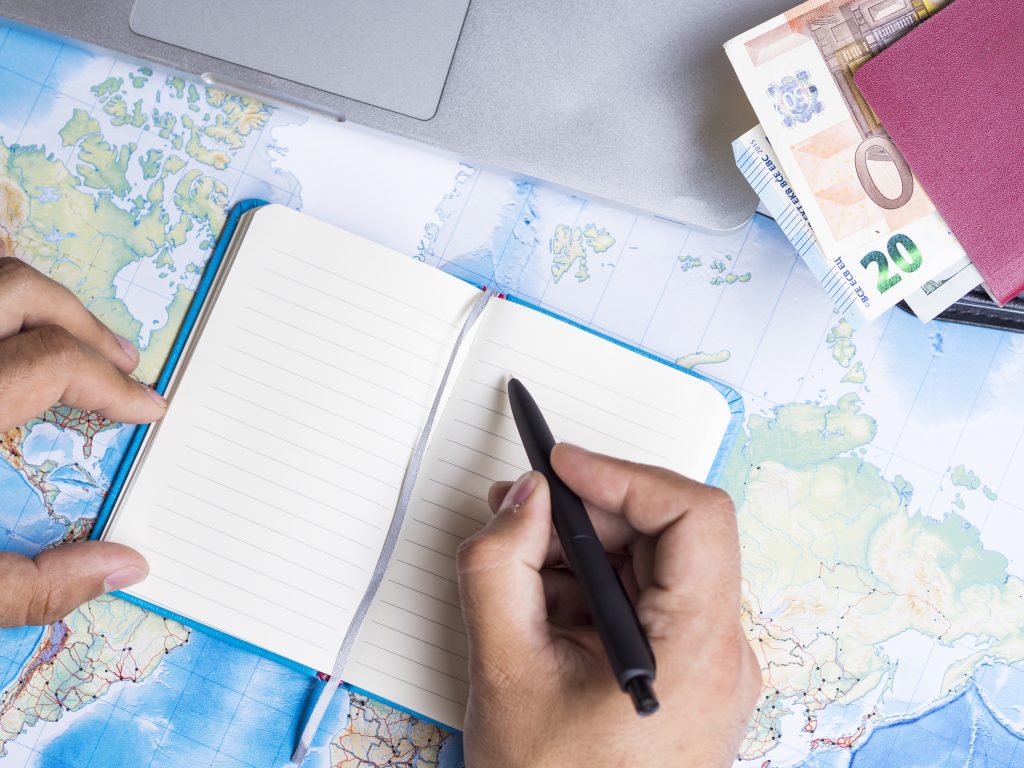How to Create a Travel Plan That Maximizes Your Budget
Daniel Fisher August 13, 2025
Traveling on a budget no longer means compromising on quality or experiences. With the rise of budget airlines, the increased availability of affordable accommodations, and a wealth of travel tools at your fingertips, it’s easier than ever to plan an exciting trip without overspending. In fact, maximizing your budget requires smart strategies rather than cutting corners. Whether you’re a solo traveler, a couple on a romantic getaway, or a family seeking adventure, this guide will help you plan a memorable journey that doesn’t break the bank.

1. Start with a Solid Budget Framework
Creating a successful travel plan begins with having a clear understanding of how much you can spend. Experts in travel budgeting often recommend taking a holistic view of your finances before making any travel-related decisions.
- Track Your Spending: To understand how much you can allocate for travel, it’s important to get a clear picture of your finances. Use budgeting apps like Mint or YNAB (You Need a Budget) to track your monthly expenses. Doing this for a month or two will give you insights into where you can cut back and reallocate money toward your travel fund.
- Include Hidden Costs: While booking a flight or accommodation might be the most obvious expenses, don’t forget about the smaller costs that can add up. These include travel insurance, airport transfers, souvenirs, and activities like excursions or meals at tourist hotspots. Budgeting for these things in advance ensures there are no unpleasant surprises.
- Build a Contingency Fund: Travel can be unpredictable, so it’s important to set aside a portion of your budget as a buffer. Experts recommend having at least 10-20% of your budget reserved for unexpected expenses, such as an emergency medical situation or last-minute flight changes.
2. Choosing the Right Destination
Where you travel is one of the biggest factors in determining your budget. If you’re flexible with your destination, you can easily find spots that offer a great experience at a lower cost.
- Consider Emerging Destinations: Popular tourist destinations like Paris, New York, or London are undeniably great, but they often come with a hefty price tag. Opt for emerging travel destinations that offer similar experiences but at a fraction of the cost. For example, cities in Eastern Europe (like Budapest or Prague) or Southeast Asia (such as Vietnam or Cambodia) are known for their affordability while offering a rich cultural experience.
- Travel Off-Peak: Timing can make a huge difference when it comes to travel costs. Visiting destinations during off-peak seasons can save you a significant amount of money. For instance, traveling to Italy in the spring or fall will cost you much less than going in the summer when flights and hotels skyrocket. Not only will you save on costs, but you’ll also avoid large crowds, which means a more relaxed travel experience.
- Look for Hidden Gems: Some lesser-known destinations can offer incredible value without sacrificing the experience. Areas like Portugal, Mexico’s Yucatán Peninsula, and the Balkans provide stunning landscapes and rich cultural experiences without the premium prices of well-trodden tourist routes.
3. Find the Best Deals on Flights
Flights can often be the largest portion of your travel expenses. But with a few simple strategies, you can maximize your budget and find great flight deals.
- Book in Advance: While it’s not always the case, booking your flight at least 6 to 8 weeks in advance generally results in the best prices. Last-minute bookings are usually expensive, especially during high travel seasons. However, if you’re flexible, you can sometimes find great deals even closer to your departure date.
- Use Flight Comparison Tools: Websites and apps like Skyscanner, Google Flights, and Momondo are excellent for comparing flight prices across multiple airlines and travel dates. You can often save hundreds by adjusting your departure time by a day or two or opting for a flight with a stopover rather than a direct one.
- Set Price Alerts: By setting up price alerts on flight comparison websites, you can monitor fare changes for your chosen routes. This ensures that you never miss a price drop and gives you the best chance to book at the lowest rate.
- Be Flexible with Your Dates: If you have flexibility in your travel schedule, use that to your advantage. Flights on weekdays, particularly Tuesdays and Wednesdays, are often cheaper than those on weekends. Also, flying during times when few people travel—such as early morning or late evening—can also lead to savings.
4. Accommodation: Finding the Best Value for Money
Accommodation expenses can add up quickly, but with the right strategies, you can find budget-friendly yet comfortable places to stay.
- Consider Alternative Accommodations: Instead of staying in expensive hotels, consider alternatives like Airbnb, hostels, or guesthouses. Many Airbnb hosts offer entire apartments or houses at affordable rates, especially in cities where hotels are more expensive. Hostels, once thought of as only for backpackers, now offer modern amenities and private rooms at a fraction of the cost of hotels.
- Stay Outside Major Tourist Areas: Accommodations located in the city center often come with a premium price tag. If you’re open to staying a bit farther out, you can find cheaper options while still being able to easily access the main attractions via public transport. In cities like London or New York, staying a bit outside the center can save you hundreds per night.
- Long-Term Stays and Discounts: If you’re staying in one location for a week or longer, reach out to your accommodation provider and ask for a discount. Many hosts or hotels offer deals for longer stays, and negotiating can sometimes reduce the price. Additionally, platforms like Booking.com and Expedia offer discounts for pre-paid bookings or long-term stays.
5. Use Technology to Maximize Your Money
In the modern age, technology has made it easier to travel affordably, thanks to a variety of travel apps and resources.
- Use Travel Apps: Apps like Hopper can predict when to book flights for the lowest prices, while Rome2Rio helps you navigate transportation options efficiently and affordably. Another great resource is Skyscanner, which allows you to search and compare flights, hotels, and car rentals to find the best deals all in one place.
- Loyalty Programs: Many airlines and hotel chains offer loyalty programs that can help you earn points toward free flights, upgrades, or nights. Signing up for these programs can help you save money in the long run, even if you don’t travel frequently. Additionally, using credit cards that offer travel rewards can boost your savings.
- Public Transportation vs. Taxis: Instead of relying on expensive taxis or rideshares, make use of public transportation. Most major cities have reliable and inexpensive metro or bus systems that can take you to all the main attractions at a fraction of the cost. Look into multi-day transport passes, which often offer unlimited travel for a set price.
6. Budget-Friendly Activities and Sightseeing
While sightseeing is often the most exciting part of traveling, activities can quickly become expensive if you’re not careful. Here’s how to maximize your experiences without blowing your budget:
- Free or Low-Cost Attractions: Many cities offer free or discounted days at museums, parks, and historical sites. Before traveling, do some research to find out when these discounts are available. A lot of iconic landmarks, such as the Louvre in Paris or the British Museum in London, offer free admission on certain days.
- Explore Local Markets and Festivals: One of the best ways to experience a new destination is by attending local markets, fairs, and festivals. These are often free to enter and provide unique insights into the local culture and traditions. They also offer affordable souvenirs that you won’t find in tourist shops.
- Join Group Tours: Instead of booking expensive private tours, look for free or low-cost walking tours of the city. Many cities around the world offer free walking tours led by local guides, where you only pay what you feel the tour was worth.
7. Eating on a Budget
Food is an essential part of travel, and fortunately, there are plenty of ways to enjoy great meals without overspending.
- Street Food: Street food is one of the most affordable and authentic ways to enjoy local cuisine. Whether it’s tacos in Mexico City, bánh mì in Hanoi, or currywurst in Berlin, street food often provides the best taste at the lowest cost.
- Cook Your Own Meals: If your accommodation has a kitchen, take advantage of it by shopping at local grocery stores and cooking simple meals. This can save you a lot of money, especially in destinations where dining out can be expensive.
- Eat Where Locals Eat: Avoid the expensive restaurants in tourist areas. Instead, ask locals where they like to eat and explore hidden gems that offer great food at much lower prices.
Conclusion: Travel More, Spend Less
Traveling doesn’t have to mean spending a fortune. By following these smart budgeting tips, you can create a travel plan that maximizes your budget while ensuring you have an incredible time. With careful planning, a flexible mindset, and the right tools, you can explore the world without overspending.
References
- Google Flights. (n.d.). Find the best time to book flights with price insights. Available at: https://www.google.com (Accessed: 13 August 2025).
- Skyscanner. (n.d.). How to find cheap flights: Skyscanner’s tips. Available at: https://www.skyscanner.com (Accessed: 13 August 2025).
- Mint. (n.d.). Personal finance management. Available at: https://www.mint.com (Accessed: 13 August 2025).







